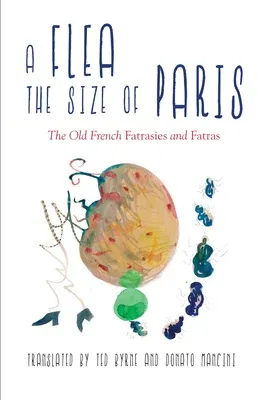A Flea the Size of Paris: The Old French "fatrasies" and "fatras"Paperback, 15 February 2020

Qty
1
Turbo
Ships in 2 - 3 days
In Stock
Free Delivery
Cash on Delivery
15 Days
Free Returns
Secure Checkout

Print Length
195 pages
Language
English
Publisher
Black Widow Press
Date Published
15 Feb 2020
ISBN-10
1733892435
ISBN-13
9781733892438
Description
Product Details
Book Format:
Paperback
Country of Origin:
US
Date Published:
15 February 2020
Dimensions:
22.61 x
15.24 x
2.03 cm
ISBN-10:
1733892435
ISBN-13:
9781733892438
Language:
English
Pages:
195
Publisher:
Weight:
430.91 gm